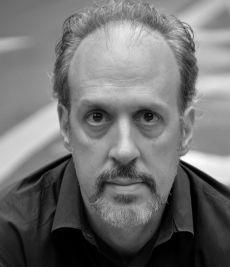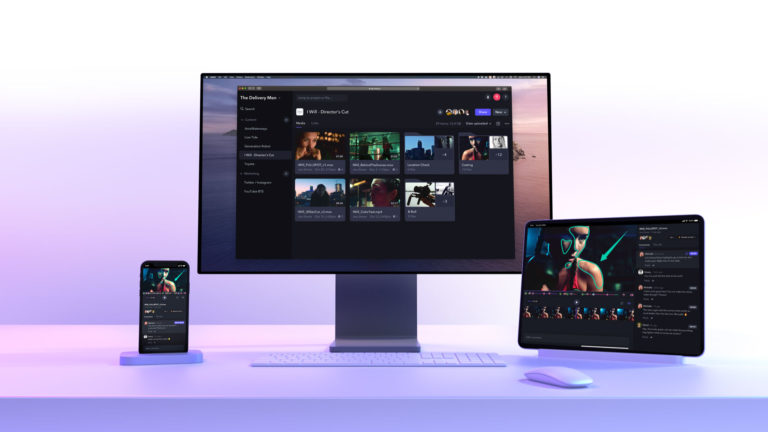
On Hitchcock's Enduring Appeal, the Public Fascination with Kink, and Making a Film About Filmmaking
When François Truffaut sat down with Alfred Hitchcock in 1962 for a book-length interview (published four years later as Hitchcock/Truffaut), he had no way of knowing that he would change the way Americans thought about their own culture. Truffaut’s painstaking examination of Hitchcock’s direction offered concrete evidence that the filmmaker was something more than a mere “master of suspense.” Now that Hitchcock’s reputation is secure, Kent Jones’ documentary Hitchcock/Truffaut, which draws on the original audiotapes, photos from the session, Hitchcock film clips and interviews with contemporary directors — including Martin Scorsese, David Fincher, Richard Linklater and Wes Anderson — takes us back to that moment. Jones concentrates on two films in particular: Vertigo and Psycho. His film sees Vertigo as perhaps Hitchcock’s most personal testament and Psycho as a precursor to the formal experimentation and real-life violence that would follow it in the ‘60s. StudioDaily talked to Jones in New York in November.
StudioDaily: Do you think it would be possible now for a foreign filmmaker/critic to cause the kind of sea change in American culture that Truffaut did in the ‘60s?
Kent Jones: No, I don’t. Film culture is in a different moment now. It’s getting harder for people to make movies with ambition that cost more than 10 million dollars within the American framework. In Europe, I don’t think it’s that different. It’s getting easier for people to make very, very low-budget films, which is great. But the totality of vision that you can get when you have real production design is harder. Let’s say that Paul Thomas Anderson’s movies, which are made in the $30–$40 million range, represent something rare. Bridge of Spies does, too. And I think that film culture is more fanned out and the spirit of auteurism is so present that even people who don’t think of themselves as auteurists talk about a film as Antoine Fuqua’s Whatever. Even [New York Post film critic] Lou Lumenick has been affected by auteurism, despite his protestations to the contrary. There is a central idea that films are made by a guiding individual. I think people have more of an idea how films are made than they used to. On the other hand, conversations between filmmakers are now omnipresent. Every DGA event between directors is recorded. The idea of discovering films is not the same thing. If you go back to the history of that moment, all those American films flooded into France after World War II. That sense of revelation guided things, and it worked its way into the record.
The last moment I can think of where a foreign film culture had a big impact on America was Hong Kong in the late ’80s and early ’90s.
Uh-huh. I think that’s true. Maybe we’re in a moment when the big impact isn’t likely to happen, but little impacts happen at micro levels. And that’s OK.
Would you have been able to make the film without access to the Hitchcock/Truffaut audio clips?
Well, that was the nature of the enterprise. I was approached. Someone said “Would you be interested in making a film based on the audiotapes?” So I said, “Yeah, 100 percent.” No, I wouldn’t have been able to make it without the audiotapes.
Was that [Cohen Media Group head] Charles Cohen? The film is a U.S.-France co-production. How did the French get involved?
It started as a French production. There was a very different kind of movie that was going to be made by Gail Levin [a documentary filmmaker with a close association with PBS and American Masters]. But Gail passed away. So there was Artline on the French side and Cohen on the American side. Then Arte came in with financial participation.
Why do you think Hitchcock’s personal fetishes and flaws remain such a source of fascination? A film like Belle de Jour is just as kinky as Vertigo, if not more so, but no one’s making biopics about Buñuel.
And they won’t be. I would say because Hitchcock was overweight. They have an image of him making overtures to Tippi Hedren, which they find so repulsive that it conjures up images in their heads and then they concoct absurd films around them. I don’t have any interest in those films. I don’t have any interest in biography as revelation whenever it is understood that the subject was a less-than-perfect human being. A case in point would be the biography of Lou Reed that was just published. I don’t care if Lou Reed was mean to somebody or behaved like an animal. Would I have cared if Lou Reed was mean to me or someone I know? Of course. But the idea that every imperfection of an artist counts as a black mark against them on some abstract scale in the clouds is old and makes for good press, but I think it’s pointless. Yes, Belle de Jour is just as kinky as Vertigo. A lot of other people’s films are kinky. A lot of other people wanted to sleep with their actresses and did. They coerced people into doing all sorts of things. The power relations between actors and directors back in those days were quite different from what it is now. That’s all for the best, but you’re talking about something that’s part of the time. And, as far as I know, he didn’t get that blow job. What went on with Tippi Hedren is horrible. What’s even more horrible is that it’s not unprecedented. He bottled up her career. It’s true that he wouldn’t lend her out to anybody. But does that mean that we shouldn’t like The Birds and Marnie? Because that’s punitive.
It seems like there are certain filmmakers whose flaws people are fascinated by. There’s a string of documentaries about what a horrible person Fassbinder was.
Other people, who were also not such wonderful human beings, have their behavior overlooked or explained away. It’s an emotional matter. It’s pure sentimentality, I think.
Do you find it harder to engage with Hitchcock through Blu-rays and DCPs, especially since that’s how the bulk of your audience for your film is likely to see his films?
No. Why would I?
I’m sure you’ve seen the bulk of his films in 35mm. You probably saw Family Plot when it first came out. There have been issues with some of the restorations, like the Vertigo one where they made the soundtrack sound like a Die Hard sequel.
I’ve seen Hitchcock’s films in every format imaginable: 16, 35, 70 (in the case of that Vertigo Jim Katz/Robert Harris restoration). Then we get into the question of film vs. HD. Hitchcock’s films are so powerful that you’re talking about a preference for one delivery system over another. Vertigo is a special case in that what Bob and Jim did with the sound is extremely puzzling. You’d get someone reading a newspaper (Jones crumples paper) and then a gunshot. If they had the dialogue tracks, I don’t understand why the effects tracks had to be equally loud. Granted, it’s a painstaking restoration. The color seemed a little off. It was a photochemical restoration for the most part. What it is now on Blu-ray is different, which is good. It’s an improvement and brings it closer to the original. I’ve seen an IB [Technicolor] print, but digital restoration doesn’t diminish it. All great films have an internal power. They’re organisms and can move beyond the question of format.
It’s notable that all of your interview subjects are male. Did you try to find female filmmakers to talk to?
I did. I asked three. One of them was in pre-production, one said she just didn’t have anything to say about Hitchcock, and the other said, “I’m very shy, and I’m not sure I want to appear on camera.” There was a fourth filmmaker, who was one of the only issues I had with my producers. I did not want to step outside and have someone analyze Hitchcock’s fetishes. I firmly agree with what David Fincher says: If you think you can hide as a director, you’re nuts. If you can do it, you’ll make bad films, or mediocre films, or films that are watchable at best. But it’s an illusion. Having said that, Hitchcock’s one of the people who said, “It’s just me.” Is he any weirder than Buñuel or John Ford or Howard Hawks? It’s just that his orientation is different. The attention given to Hitchcock by feminists is something I can’t really comment on because it’s looking at the films through a framework that’s not as productive as it appears to be, in the sense that you’re talking about movies made at a period when that kind of license — not just about women, but about actors in general — was available. I don’t think anyone would make a movie like Frenzy now. They would do it ironically. Brian De Palma, you could say, has made films in that vein.
Dario Argento?
Yes, but that’s a figure of style. Like Fincher said, the woman’s story in Vertigo is more honest, but Hitchcock’s taking Scottie’s story. He’s absolutely on target. It’s not Hitchcock’s point of view towards women, it’s his point of view towards a man projecting everything on women, staking his entire life on a woman. It’s the thing that makes the film so utterly devastating. The reason I didn’t enjoy cinema studies when I was in college is that it was premised on the idea that there was always something that superseded cinema. So why are we here, if we all have to feel guilty and be punitive towards ourselves? The question of the inequality of women is serious, but to frame it in terms of Alfred Hitchcock movies is misinformed and moving you away from what it is. Really, we need to examine why women feel the weight of subjugation in a world where supposedly it doesn’t exist. Yes, there’s real pay inequality, but I don’t think social engineering and making more women film directors is the answer. The answer involves self-examination of weights that are habitually carried and can’t be so easily lifted. It’s a troubling question and it goes way beyond Alfred Hitchcock.
Did you think of venturing beyond filmmakers as interview subjects and interviewing someone like critic Amy Taubin?
No, I wanted to make a film about filmmaking. I wanted that because it was a discussion between filmmakers. Having filmmakers talk about the change in acting was different. The question of women in Hitchcock’s films is there in the film itself. I just didn’t want people clinically commenting on it. When he talks about Vera Miles, he says, “She went pregnant on me. Silly girl.” It’s there in his language. I don’t need to have anyone editorialize about that. Beyond that, I didn’t want anyone but filmmakers in the conversation.

Hitchcock crossed the line between cinephilia, mainstream entertainment and academia. Do you think there’s anyone around who bridges those gaps now?
You mean he’s a known entity and popular in all three? I don’t sense that fervent enjoyment of his work in academia.
He was at a certain point in time.
That brings us back to the feminist question.
I’m somewhat distant from academia, too, but I can’t think of any contemporary filmmaker who bridges those gaps. Maybe Wes Anderson or certain Spielberg films.
I don’t really know what academia is now. I know what it was when I was in it. I didn’t like it. I correspond with [professors and film theorists] David Bordwell and Noel Carroll. Noel was by far the best professor I had, but NYU wouldn’t give him tenure, so he split. The kind of thinking that you’re discussing is something that you and I have talked about before. Noel mentioned that moment when people merged semiotics, Marx and Freud, and they say it’s necessary. He says it set Cinema Studies back 50 years and made a laughingstock out of the discipline. David, Noel and Kristin Thompson took it in a different direction — more reality-based, as opposed to this “off in the clouds” stuff that reached a peak moment in the ’80s. As cinephilia goes, these are all ideas that are in motion and not fixed. Cinephilia is a term I’m not 100% comfortable with. I don’t agree with it in the Serge Daney [an influential French film critic from the 1960s until his death in the early 1990s] sense, as movie love in terms of a divine affliction. It’s just something some people are interested in, and that’s great, like other people are interested in poetry or nature. As far as the popular goes, that changes all the time. There was a moment in the ’90s when it seemed like film preservation was cemented in people’s minds, and then I realized that we had to keep going. Anyone who’s reasonably known nowadays is going to be attractive to all three spheres that you’re discussing.
Hitchcock/Truffaut opens today at Film Forum in New York City.
Did you enjoy this article? Sign up to receive the StudioDaily Fix eletter containing the latest stories, including news, videos, interviews, reviews and more.










